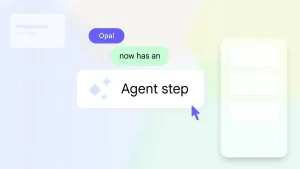Harvey’s $100M Funding: A Game-Changer in LegalTech

In an impressive move, Harvey, a legaltech startup focused on AI solutions for the legal industry, has secured $100 million in a Series C funding round led by GV. This takes Harvey’s total funding to a significant $206 million and values the company at $1.5 billion. The startup aims to revolutionize legal workflows through AI.
Harvey, co-founded by Winston Weinberg and Gabriel Pereyra, plans to use the funds to build specialized AI models and expand its workforce. These new advancements are anticipated to help lawyers perform complex tasks more efficiently, paving the way for a significant transformation in the legal sector. This funding is not just an investment in Harvey but in the future of legal technology.
Harvey’s Latest Funding Round
Harvey, a legaltech startup, designed as an AI “copilot” for lawyers, recently secured $100 million in a Series C funding round led by GV, Google’s corporate venture arm. This massive investment brings Harvey’s total funding to $206 million and values the company at $1.5 billion. Other notable investors include OpenAI, Kleiner Perkins, Sequoia Capital, Elad Gil, and SV Angel.
In a recent blog post, co-founders Winston Weinberg and Gabriel Pereyra elaborated on their plans for the new funds. The main focus will be on collecting and curating data to build specialized AI models. Additionally, the funds will support expanding Harvey’s workforce and paid services to new regions. Weinberg emphasized the investment in engineering, data, and domain expertise, which are fundamental to building AI-native systems for complex legal work.
Their ultimate aim is to integrate more models into Harvey and enhance training collaborations to improve the model’s efficiency. Weinberg stated, “We will use this new capital to invest in the engineering, data, and domain expertise that are fundamental to building AI-native systems that facilitate the most complex knowledge work.”
Founders and Origins
Winston Weinberg and Gabriel Pereyra, the co-founders, have impressive backgrounds. Weinberg, a former securities and antitrust litigator at O’Melveny & Myers, teamed up with Pereyra, who has worked as a research scientist at DeepMind, Google Brain, and Meta AI. San Francisco-based Harvey was launched in 2022.
Interestingly, the idea for Harvey originated from a casual conversation between the two roommates. Pereyra introduced Weinberg to OpenAI’s GPT-3 text-generating system. Weinberg quickly saw its potential to revamp legal workflows, given its capability to answer legal queries framed in natural language. This laid the foundation for their revolutionary legaltech startup.
Harvey leverages OpenAI’s GPT-4 model to handle tasks such as answering legal questions, extracting information from trial transcripts, and generating first drafts of filings. The system even identifies legal documents that can back up court arguments and rewrites clauses that may violate specific laws. It is a comprehensive tool with far-reaching implications for the legal profession.
Challenges and Constraints
Despite its innovative approach, Harvey faces significant challenges. The legal field deals with highly sensitive information, which makes some lawyers hesitant to allow an AI tool to access case documents. However, Harvey has included a disclaimer noting that it is not intended to offer legal advice to non-lawyers and should be used under the supervision of licensed attorneys.
Another concern is the language model’s tendency to generate incorrect or toxic information. Such errors could be disastrous in legal contexts, where accuracy is paramount. Weinberg and Pereyra have been transparent about these issues and are working to address them through ongoing updates and improvements.
Still, Harvey has shown promising potential. The tool is in use daily by tens of thousands of lawyers at prestigious firms such as Allen & Overy, Macfarlanes, Ashurst, CMS, Reed Smith, and PwC. These firms rely on Harvey to streamline labor-intensive tasks and improve efficiency, showcasing the tool’s practical applications despite its limitations.
Competitive Landscape
Harvey is not the only player in the AI legaltech space. Competitors like Casetext also use AI models for tasks such as legal research and brief drafting. Another competitor, Klarity, uses AI to simplify contract review processes. This competition indicates a growing trend in the legal industry towards adopting AI-driven solutions to handle routine and complex tasks.
At one point, startup Augrented explored using OpenAI models to summarize legal notices and help apartment tenants defend their rights. This shows the versatile applications of AI in the legal tech sector. Meanwhile, the competition pushes Harvey to continuously innovate and improve its offerings to stay ahead.
Despite the competition, Harvey’s unique features and the backing of prominent investors set it apart. With a focus on AI-native systems, Harvey aims to tackle the most complex legal tasks and provide solutions tailored to legal professionals’ specific needs.
Future Plans and Revenue Growth
Harvey has ambitious plans for the future. The company’s annual recurring revenue has tripled since last December, according to the co-founders. Their workforce has also tripled in size, demonstrating rapid growth and a strong market presence.
However, not all their plans have come to fruition. The Information reported that Harvey initially aimed to raise $600 million at a $2 billion valuation. Part of this funding was intended to acquire vLex, a legal research service, to boost their AI’s training data. Despite these setbacks, the latest funding round still marks a significant achievement for the company.
Looking ahead, Harvey plans to focus on scaling its AI-powered technology across various business functions and geographies. The co-founders are committed to leveraging their expertise to continually enhance their services and integrations, ensuring they remain at the forefront of the legaltech industry.
Harvey’s Impact on the Legal Industry
Harvey’s AI-driven tools have the potential to revolutionize the legal industry. By automating routine tasks, lawyers can focus on more complex aspects of their work. This shift could lead to increased efficiency and reduced costs for legal services, benefiting both legal professionals and their clients.
Moreover, the ability to answer legal questions in natural language makes legal information more accessible. This democratization of knowledge could have far-reaching effects, making it easier for non-lawyers to understand legal concepts and navigate legal processes.
At the same time, the integration of AI into the legal field raises important ethical considerations. Ensuring the accuracy and reliability of AI-generated information is crucial to maintaining the integrity of legal proceedings. Harvey’s founders are aware of these challenges and are actively working to address them through rigorous testing and quality control measures.
Customer Adoption and Real-World Use
Harvey’s tools are widely adopted by prestigious firms and consultancies. Tens of thousands of lawyers use the platform daily, demonstrating its practical value and reliability in real-world scenarios. Firms like Allen & Overy, Macfarlanes, and PwC are among the notable users who trust Harvey to enhance their legal workflows.
These firms leverage Harvey’s capabilities to automate labor-intensive tasks such as document review, information extraction, and legal research. The platform’s ability to generate first drafts of filings and identify supporting documents for court arguments significantly boosts efficiency.
The widespread use of Harvey’s tools underscores the growing acceptance of AI in the legal industry. As more firms adopt such technologies, the landscape of legal practice is likely to evolve, paving the way for more innovations and advancements in the field.
Conclusion
In summary, Harvey, with its AI-powered legal tools, is making significant strides in the legaltech space. The recent $100 million funding round highlights investor confidence in its potential. As the company continues to innovate and expand, it is poised to shape the future of legal practice with its advanced technologies and solutions.
In summary, Harvey’s advancements in AI-driven legal tools are poised to significantly transform the legal industry. Its recent $100 million Series C funding, led by GV, underscores the strong confidence investors have in its potential. As Harvey continues to innovate and expand, its AI solutions will likely play a crucial role in shaping the future landscape of the legal profession.





